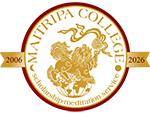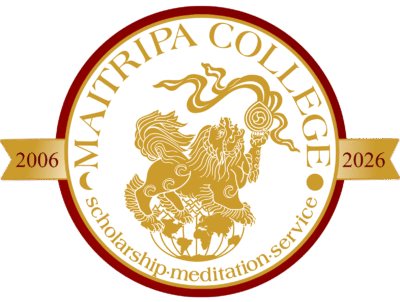Important: these examples are offered by way of illustration only. They are not intended as legal or tax advice. Please consult a lawyer or tax adviser for professional advice.
The ways to include the college as a beneficiary of your will or living trust include:
Specific bequests, stated as a specific dollar amount, or as a specific bank or investment account that you are giving to the college.
Examples:
- I hereby make the specific gift of $______ (dollars) to Maitripa College.
- I hereby make a gift to Maitripa College of my investment account at [name of bank/brokerage/mutual fund], with account number [account number].
Remainder bequests, typically stated as a gift to the college of a percentage of your estate that remains after costs, taxes and any specific bequests.
Example:
- I leave the remainder of my estate to the following individuals and charitable organizations in the percentages noted:
Spouse X%
Child Y%
Maitripa College Z%
Note: The percentages should add up to 100%
Contingent bequests, stated as a gift you make to the college that is filled if no one you have named to receive either a specific or remainder bequest is no longer living at your death.
Example:
- In the event none of the individuals or organizations I previously named in this will (or it may be a living trust) is living or in existence at the time of my death, I hereby leave the remainder of my estate to the following organizations in the percentages as noted:
Maitripa College X%
ABC Foundation Y%
Note: The percentages should add up to 100%
Example of Naming Maitripa College as a beneficiary of a retirement plan:
Certain retirement plan (such as IRA’s, 401(k), and 403(b)) distributions are taxable income to the beneficiary who receives them. A tax-exempt organization like Maitripa College is not subject to income taxation, so any retirement plan benefits we receive as beneficiary on the a plan participant’s death will pass to the college without income tax. By skillfully structuring beneficiary designations, you may be able to minimize income taxes resulting at your death and increase the amounts which will go both to your family members and the college. The following is an example of how this would work:
- Say your estate would be worth $90,000 at your death, and $30,000 of that is in an IRA (but not a Roth IRA!) If you leave 1/3 of your estate to each of your two children and 1/3 to Maitripa College, then each child could receive one-third of the IRA, subject to income taxes. The $10,000 each child receives will be income to the child. At a 25% tax rate, each child potentially loses $2,500 to income tax. In this example, each child effectively only receives $7,500 while the college (which does not have to pay income tax on the $10,000 it receives) gets the full $10,000.
- Consider, instead, if you were to name Maitripa College as the only beneficiary on your IRA, and your children as equal beneficiaries (50%-50%) in your will or living trust. In this case, your children would each receive $30,000 not subject to income tax (under current estate tax rules), and the charity would receive the full $30,000 from the IRA not subject to income tax.
This is a very general example to show the tax benefits of naming an exempt organization charity as the beneficiary on a retirement plan. It is important to seek competent tax or legal advice when naming retirement plan beneficiaries to assure that it is done properly.


